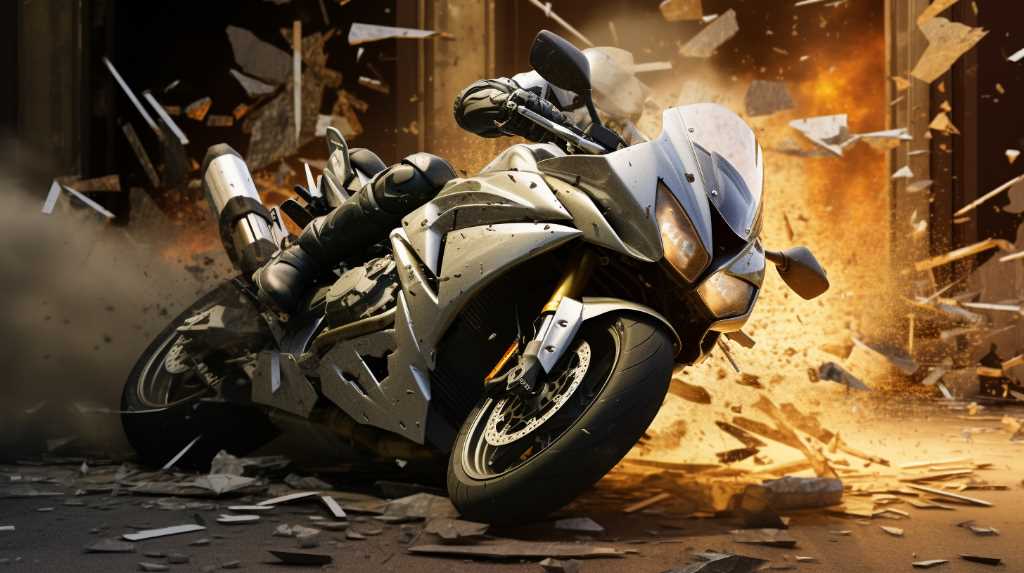
When talking about motorcycle incidents, people often use the words ‘crash’ and ‘accident’ as if they mean the same thing, but they don’t. The word ‘accident’ makes it sound like no one is to blame, like it was just bad luck. But when we say ‘crash,’ we’re usually talking about something that could have been avoided, like if someone wasn’t paying attention or was driving badly.
This small difference in words is actually a big deal when it comes to the law, insurance, and how we try to make the roads safer. For example, if a motorcycle collision is called an accident, it might seem like nobody’s fault, but if it’s called a crash, then it points to someone making a mistake. This matters in court or when dealing with insurance.
Plus, the words we choose can change how people think about road safety. So, this isn’t just about grammar—it’s about how we think and make decisions to prevent these bad things from happening on the road.
Understanding the Terminology
When we talk about motorcycle incidents, the words we use matter. Calling something a ‘motorcycle accident’ suggests it was unexpected and nobody’s fault. However, when we say ‘motorcycle crash,’ we’re hinting that it might have been avoided, and someone could be responsible.
For example, if a driver was speeding and hit a motorcycle, calling it a crash points to the driver’s mistake. Researchers look at traffic reports and use the word ‘crash’ on purpose. They want to show that people’s choices or problems with the road play a part in these events. This careful choice of words helps find patterns and come up with better ways to keep people safe on the roads.
When making rules to lower the number of these sad events, it’s really important to use the right terms. This helps make sure we focus on stopping them from happening again.
Historical Context of ‘Accident
Historically, the term ‘accident’ has often been applied to road incidents to imply a lack of fault or intention. This terminology has roots in the early automotive industry and was perpetuated by legal and insurance frameworks that needed to categorize and assess traffic incidents. The word ‘accident’ suggests an unforeseeable event occurring without deliberate cause, allowing for a certain detachment from responsibility.
However, data-driven analysis indicates that many of these occurrences are not strictly ‘accidental’ in nature but are instead the result of specific actions, errors, or negligence. Precise examination of crash investigations and traffic safety studies has led to a shift in perspective, recognizing that most vehicular crashes are predictable and preventable.
Consequently, the use of ‘crash’ over ‘accident’ is gaining favor in professional and legal contexts to emphasize accountability and causation.
Implications in Legal Scenarios
In court cases about traffic, whether you call something a ‘motorcycle crash’ or a ‘motorcycle accident’ can really matter. Using the word ‘accident’ might make it seem like no one meant for it to happen, which can change how people think about who is to blame. On the other hand, calling it a ‘crash’ could suggest someone was acting carelessly or broke the law, and it could have been stopped.
It’s very important for police and lawyers to choose their words carefully because it can affect what the judge or jury thinks. Studies show that the words used in reports and legal papers can tilt court decisions and the amount of money paid in damages. They can even change the rules made to make roads safer.
Psychological Impact of Wording
The words we use can really affect how people feel. When we talk about a ‘motorcycle crash’ instead of a ‘motorcycle accident,’ it changes the way people think about it.
For example, calling it a ‘crash’ might make people think someone was being careless and they might get upset or want someone to be held responsible. But if we say ‘accident,’ it sounds like it just happened without anyone meaning for it to, and people might be more understanding.
This is important because the words we pick can shape how people see things and how those involved feel and heal after the event. It can even have an impact on who is blamed or how we look at these events in court or society.
Safety and Preventive Measures
Taking safety steps can really help lower the chances of getting into a motorcycle crash. For example, when riders wear helmets, they are about 37% less likely to die from a head injury if they have an accident. Also, motorcycles with anti-lock braking systems (ABS) get into 31% fewer crashes, as research has shown.
Learning how to ride safely is super important too; it teaches bikers how to be more aware of their surroundings and how to drive to prevent accidents. Wearing bright clothes and having good lights on your bike makes it easier for others to see you, which means they’re less likely to run into you.
Following all the road rules, like speed limits, and not riding after drinking are key parts of staying safe on a motorcycle.
Conclusion
To put it simply, whether you call it a ‘motorcycle crash’ or a ‘motorcycle accident’ can really matter.
If you say ‘accident’, it sounds like nobody could have stopped it from happening. But if you say ‘crash’, it seems like someone could have done something to prevent it.
This choice of words can change how people think about what happened and can even affect legal decisions and how we try to make roads safer.
So, when we talk about these events, the words we use are very important.